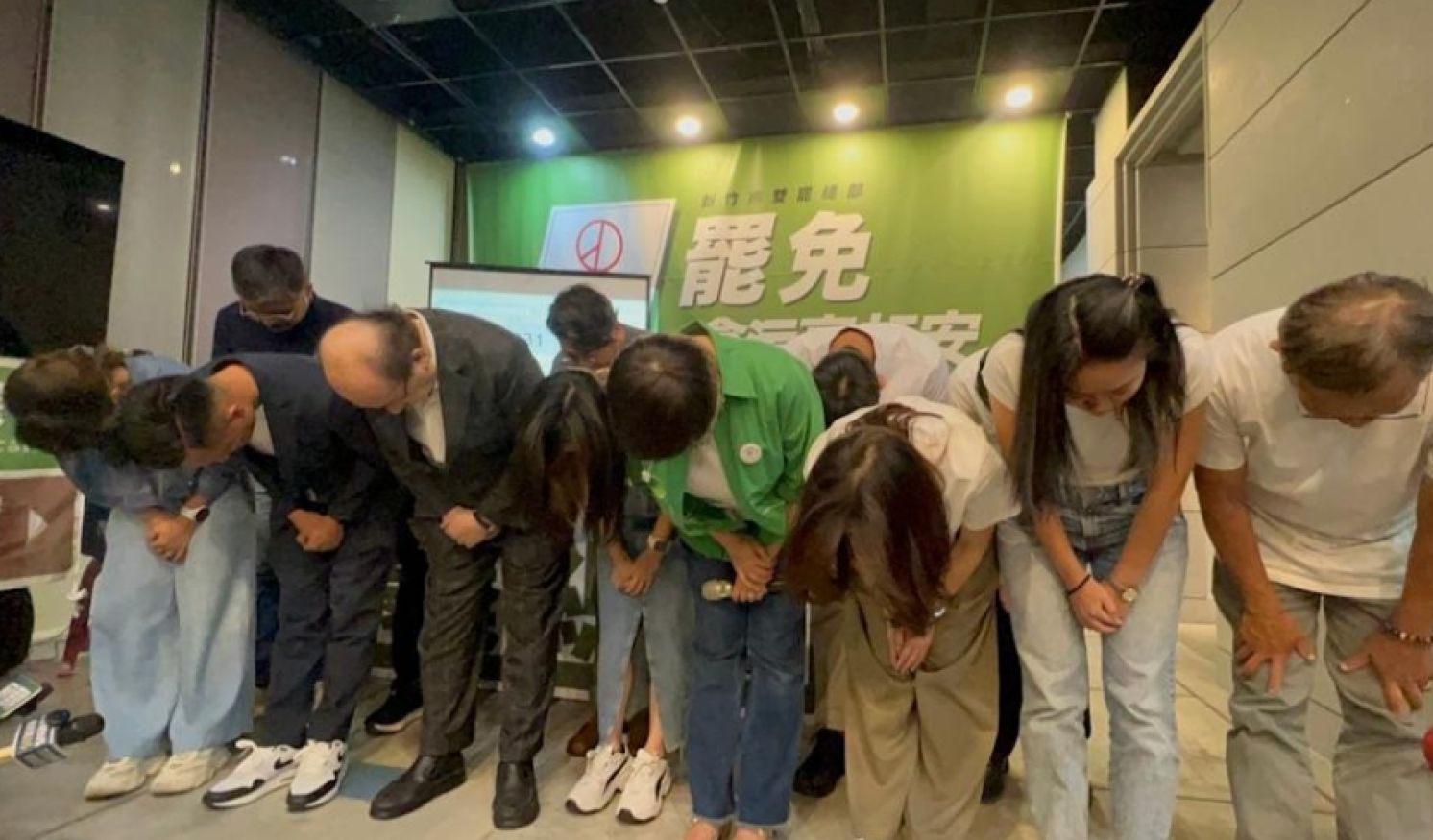
Recall Failure Reflects Vote of No Confidence Against President Lai
United Daily News Editorial, July 27, 2025
The aggressive recall campaign orchestrated by the ruling Democratic Progressive Party (DPP) came to a dramatic and moving end yesterday, marked by complete failure—not a single legislator was successfully recalled. The most crucial factor behind this unexpected outcome was the surge of silent voters who turned out en masse to cast “no” votes against the recall, effectively thwarting the Lai administration’s attempt to consolidate power through questionable means. The message sent by these outraged citizens was loud and clear—a resounding rebuke to the government. Can President Lai Ching-te and Premier Cho Jung-tai really pretend they didn’t hear it?
Across the board, “no” votes overwhelmingly outnumbered “yes” votes in every contested district, underscoring that voters were no longer focused on the individual legislators themselves. Rather, they were alarmed by the potential collapse of Taiwan’s democratic foundations and rose collectively to defend them. It was a profoundly moving moment. Over the past year, the Lai administration—unwilling to accept its minority status in the legislature—has fueled divisive politics, portraying opposition oversight as “constitutional sabotage,” labeling the Kuomintang (KMT) and Taiwan People’s Party (TPP) legislators as “pro-China traitors,” all in an attempt to cover up its own failures in governance. Had the DPP’s recall succeeded, Taiwan would be staring into the abyss of authoritarian “green despotism.” Fortunately, voters recognized the danger and stopped this malicious plot in its tracks.
During the campaign, polls consistently showed that over 60 percent of the public opposed the recalls. However, due to the “spiral of silence” effect, the pro-recall camp’s high-profile and sometimes arrogant rhetoric drowned out the more subdued opposition. But silence is not submission. What ultimately gave people the courage to resist was their deep aversion to the DPP’s arrogance. From the outset, the recall campaign diverged from the spirit of democracy, and the DPP and its affiliated networks relentlessly demonized opposition legislators with baseless accusations of collusion with China and betrayal of the nation. Meanwhile, the Lai administration’s governance has been marked by chaos—abuse of power, disastrous disaster response efforts—all of which have pushed public sentiment to a freezing point.
The results from several key districts clearly reflected the public’s shifting stance. For example, Legislator Yeh Yuan-chih from New Taipei, who topped the list of vulnerable targets, not only survived the recall but won over 3,000 more “no” votes than “yes” votes. In Taitung, legislator Huang Chien-pin, who won last year largely due to a split within the DPP, also saw “no” votes vastly outnumber those in favor of recall. Faced with such a clear shift in public sentiment, what more can the DPP say? Legislators like Wang Hung-wei, Hsu Chiao-hsin, and Niu Hsiu-ting—rookies who had been singled out by the DPP due to their strong performances—also faced intense recall efforts. Yet the final results showed voters turned out in full force to support them. The public sees clearly who is truly undermining Taiwan’s democracy.
The failure of this recall campaign was the result of multiple compounding factors. President Lai, who also serves as DPP chairman, was the chief architect of this initiative and must bear full responsibility for its collapse. His political arrogance and stubbornness are completely disproportionate to his weak electoral mandate. He believed the recall campaign would eliminate the opposition in one fell swoop. Instead, what it destroyed was his administration’s credibility, dignity, and public trust. If President Lai is willing to lead the government, legislature, and party in sincere self-reflection, then the DPP may still have a path forward. But if he continues to create conflict, disregard public sentiment, and search for enemies within, the next three years will end in total paralysis. What, then, will President Lai leave behind in the history of the DPP that could be considered a “legacy”?
President Lai’s now-defunct “10 speeches on unity” foreshadowed the unsustainable nature of this recall attempt. He has repeatedly spoken of strengthening Taiwan’s “social resilience,” yet the failure of this recall effort proves that such resilience is already alive and well—manifested in a democratic will that resists manipulation and a public that refuses to dance to the tune of political deception. Taiwan’s democratic journey has been long and fraught with challenges, but it has forged a society capable of resisting radical factions with quiet strength. The DPP must stop underestimating the people of Taiwan.
If this recall campaign was, in effect, a vote of no confidence in the Lai administration, both President Lai and Premier Cho have now unmistakably heard the people’s voice. It is time for them to set aside their arrogance, frivolity, and prejudice—and lead the nation out of this political quagmire.
From: https://udn.com/news/story/7338/8898919?from=udn_ch2_menu_v2_main_index